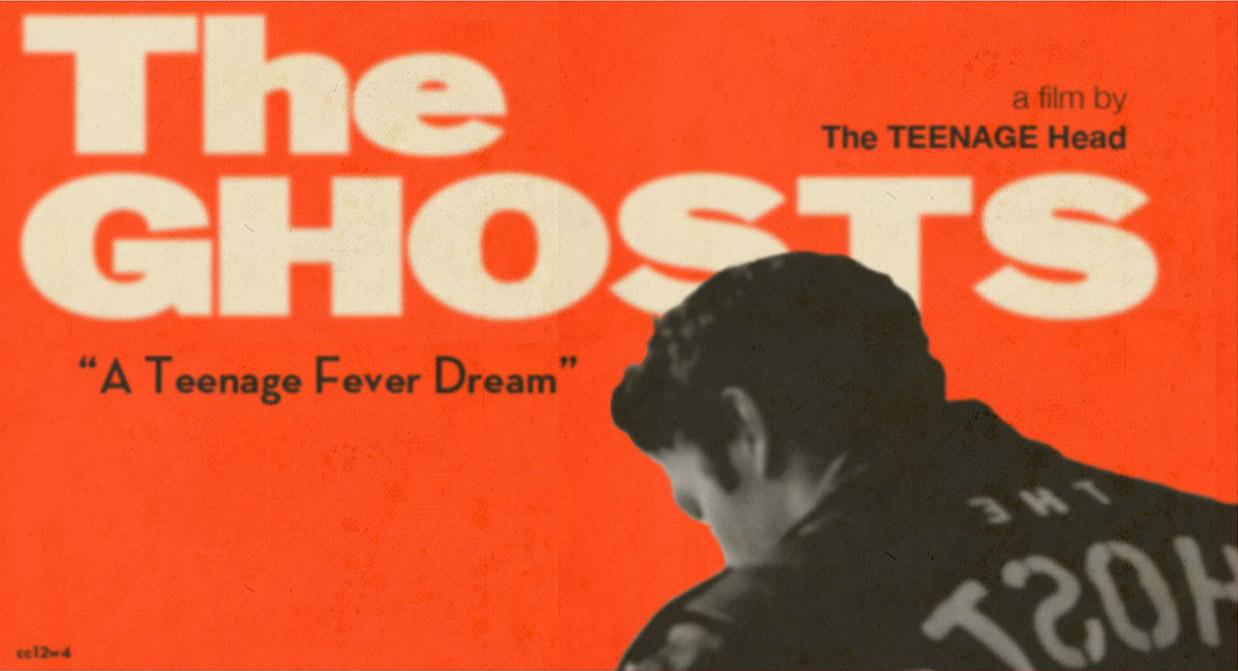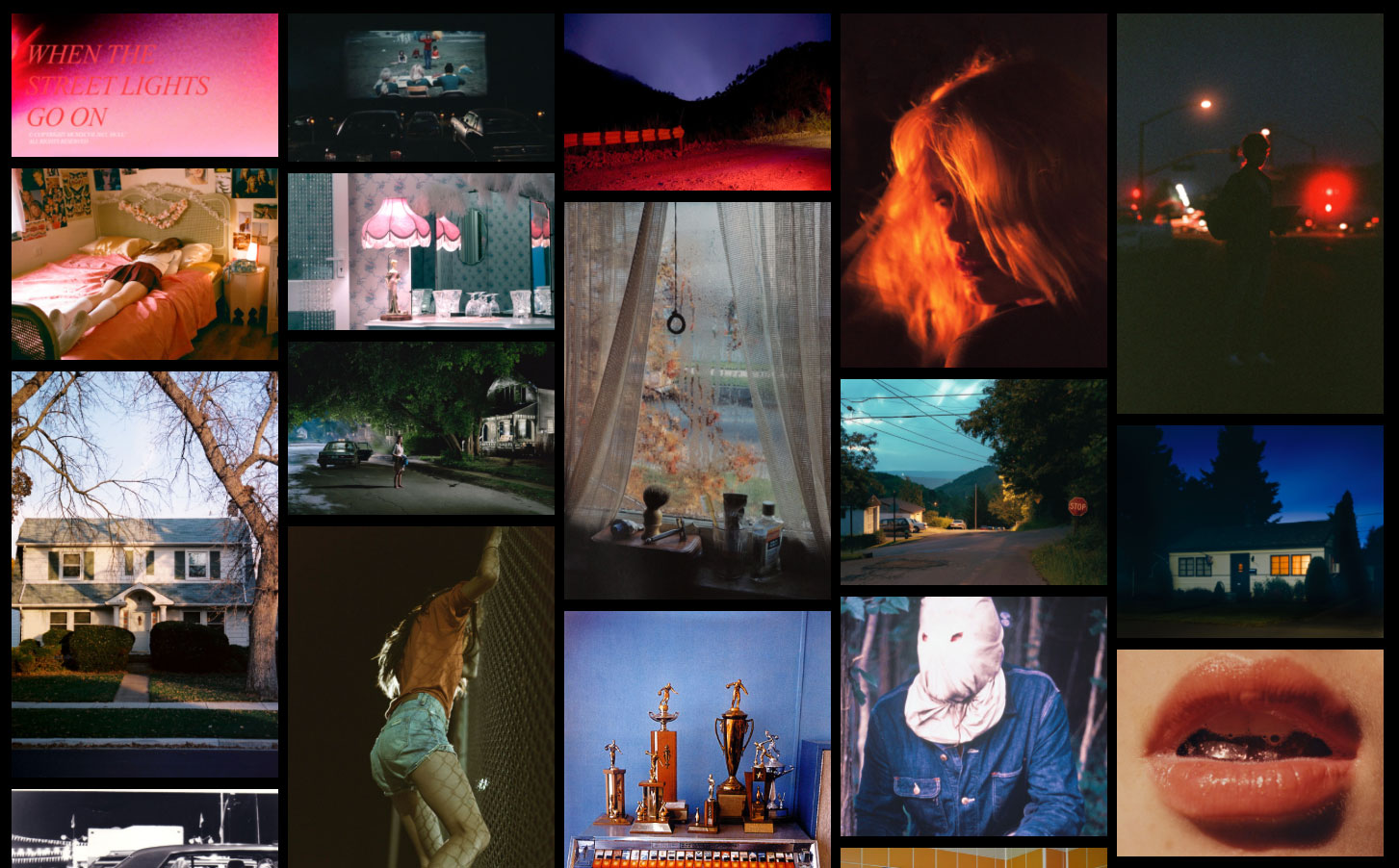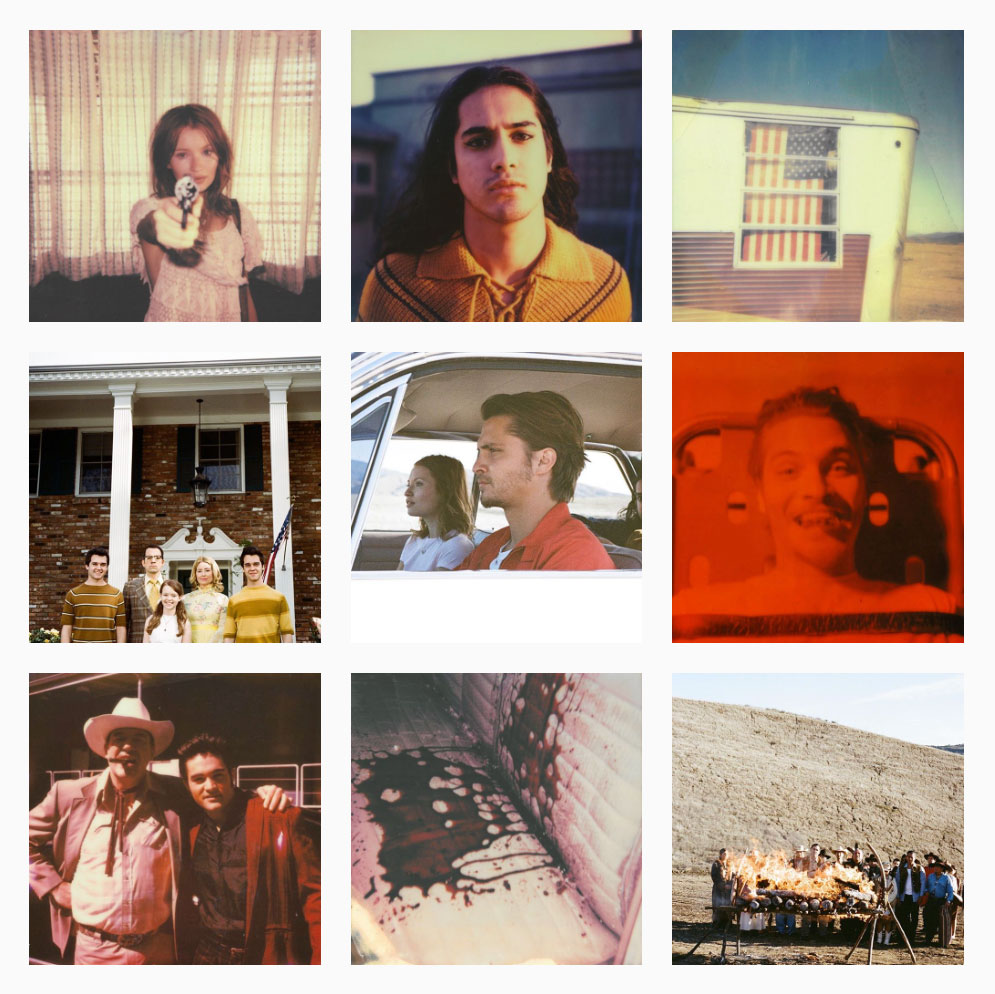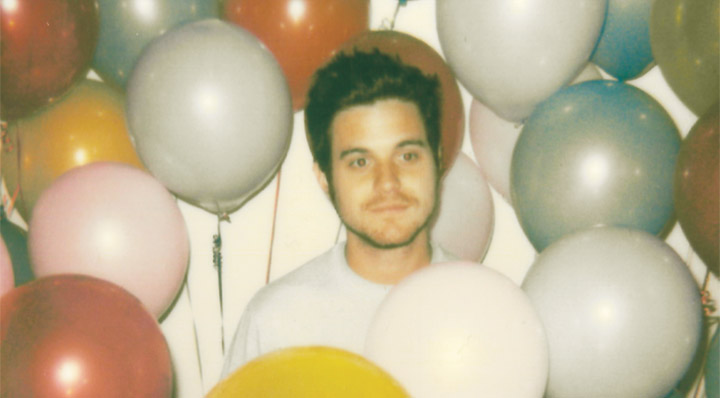In 2011, filmmaker Eddie O’Keefe’s short film The Ghosts—a low-fi, retro high school drama—had failed to make any headway with film festivals. So Eddie skipped the festival route altogether, opting instead to put the film online (where we first saw it) where it caught the attention of trendsetters across the world and inspired a league of copycats. It landed Eddie an agent and the chance to write a feature script When the Street Lights Go On—a coming-of-age thriller about a sleepy suburban town that’s rocked by the brutal murder of a high school girl in 1983. The freshness of Street Lights struck a cord with Hollywood landing him a top spot on the coveted Black List and a series pilot for Hulu.
How did the 28-year old from Davenport, Iowa who uses Tumblr to sketch out new film ideas find his way into Hollywood? Not by taking the typical path.
Our New Filmmaker Series, takes a look at how technology is changing every filmmaking and the new wave of filmmakers blazing the way.
—
Why did you put The Ghosts online over going the more typical festival path?
We submitted The Ghosts to a few festivals but it wasn’t accepted anywhere, so we just put it up on Vimeo.
When Vimeo staff picked The Ghosts and you guys [Short of the Week] wrote about it, I realized you didn’t need boring film festivals anymore.
If you had something halfway okay and from the heart, then people would share it and write about it and talk about it.
Festivals are so out of touch, man. I mean if you have an independent feature and you need to find a distributor and make your money back, you don’t have much choice but to play their game, unfortunately. Those dinosaurs still have a lot of control in that area. But for a short film, that’s just not the case. Just put it up online and push it out there and if it’s even halfway decent or has one or two ideas in it, people will find it and share it.
What’s happened since you released The Ghosts?
An agent by the name of Simon Faber at William Morris Endeavor saw The Ghosts here on Short of the Week. He wrote me an email in the spring of 2011—a few months after The Ghosts went up online—and he said he dug it and wanted to meet up. At the time I was working at a bar at the Chateau Marmot in Hollywood and not really doing much else. For a while I was Tom Cruise’s personal driver. I also worked as a male stand in on a few porno films. Just odd sorta jobs around Hollywood.
Anyway, a few weeks later I went into WME and met with Simon and he just sorta asked me about what I wanted to do with my life, you know. I told him I wanted to write and direct movies. And he asked me to pitch him some ideas which I wasn’t really prepared to do. But I guess I had a few things in my head. Just scraps, you know. So I pitched him this thing called When The Street Lights Go On, which I said was like if John Hughes directed Zodiac or something. Kind of a coming-of-age murder mystery, small town Stand By Me kinda thing. Schwinns and cicadas and shit. Set in 1983. It was an idea my coworker at the Chateau and I would talk about from time to time on our lunch breaks and whatnot. And Simon dug that idea and said I should write it. Oh, and I also pitched him an idea about these two lovers on the run in 1974, who break out of a rehab center and head to LA to kill Elvis Presley. He didn’t like that idea so much, but oddly enough, that one got made first. I directed it last year, and it’s finally coming out in theaters in September. It’s called Shangri-La Suite, and I’m real proud of it.
Anyway, I wrote the script for When The Street Lights Go On with this Chris guy, my buddy from the hotel. Neither of us had written a feature length screenplay before but we just kinda dove into it. We wrote during lunch breaks and after our shifts. Sometimes the hotel would give us a free room. Also around this time, this manager kid named Tariq Merhab also saw The Ghosts—don’t really remember how—and he started working with us too.
So after like ten days or something, we had a finished first draft. We didn’t think it was anything special really, but we thought it might be cool. So we sent it to Simon and just kinda hoped he’d dig it enough to continue working with us.
Long story short, it was just one of those lucky things where, for whatever reason, the script struck a nerve with folks around town.
It got sent around and some companies wanted to produce it and it wound up on the The Black List (we didn’t know what that was at the time, but we were told it was important). Imagine Entertainment optioned it for a little while but that fell apart.
Then Anonymous Content bought it at the beginning of 2012, and we worked on it for like three years but it never got off the ground as a film. So then we took a year off and Chris and I got to writing Shangri-La and I directed that. When that was done, Anonymous asked us if we would consider rewriting Street Lights into a television pilot. They had just recently had some success with True Detective and The Knick and were looking to set up more TV stuff. And although initially we weren’t so hot on the idea, we were broke. I lost all my money gambling on a fight in Vegas (true story, almost died) and they said they’d give us a little cash to do it and so we did. Then after a year of that (everything takes so goddamn long, man, it’s crazy) Hulu read it and dug it and said, “Okay, let’s make it.” So we did that back in April. And we’re just waiting to hear if it’s gonna go to series or not. We should know in the next week or two.
The way you describe things, you make it sound as though you stumbled into a film career. Do you feel that way or do you feel like you earned it?
Yeah, I mean, it does sometimes feel like I just stumbled into a career. I think I got lucky with the timing of things, you know? Like I made this little film and then that got written about on some websites and then some agent saw it and took a chance on me. Also I got real lucky that the first script I ever wrote wound up connecting with people. I don’t know why. I really didn’t know what I was doing. I still don’t. It’s not like I didn’t put a lot work into it or something. I don’t mean to sound indifferent or ungrateful, it’s just that, you know, there was no real plan. I never had some scheme I was working, trying to break into Hollywood or whatever.

Well, why do you think things worked out for you when millions of filmmakers struggle for years and end up with a lot less?
I think one of the things I’d say is this—Hollywood, or the industry or whatever, it’s not some big scary guarded kingdom. It can look that way from the outside I guess, like “breaking in” is some impossible achievement. I suppose I was guilty of that kind of thinking too; Googling “how do I get an agent” when I was nineteen or whatever; taking it all very seriously; getting business cards printed. Getting your foot in the door feels so abstract when you’re starting off.
But then, once you’ve made some headway and met some people and set up some stuff, you realize that agents, executives producers, whoever—they all just want your shit to be great.
Their job is to find great shit and make money off of it. They want great material and fresh voices. And the good material always rises to the top. It’s always discovered because it doesn’t take a genius to look around at all the bad, boring, bland, predictable TV and film out there and realize how bleak the situation is—how few real ideas are around. So if you have ideas and you put your heart into your work, then people will find it. I got lucky that, for me, some things lined up rather quickly. I feel a little spoiled by that. But at the same time, I haven’t exactly been some runaway success either. I’ve enjoyed some modest victories. I hope bigger things are on the horizon.
It’s encouraging to know that great work is recognized and rises to the top. But there’s still a leap from being discovered and actually getting your great work made. What’s been the hardest part about getting to where you are today?
How long it all takes. You wait weeks for meetings to get scheduled or phone calls to happen. You wait months for decisions to be made.
80% of the time you’re sitting around on a Wednesday at 3PM, sweating your ass off, waiting for someone to call you.
How’s your experience with Hulu been so far? How hands-off or hands-on have they been compared to more typical production companies?
Right now the show hasn’t moved past the pilot phase, but so far Hulu has been pretty incredible. They’re in a really interesting place where they’re excited to take risks and try weird shit. If anything they’ve pushed us to be bolder and weirder with our storytelling.

When the Street Lights Go On – mood board
If I remember correctly, you went to AFI. How much did that shape your outlook on the film industry?
I started off at AFI, but dropped out after the first year. I really liked the program while I was there though, and I learned a lot. AFI treats filmmaking like a trade or a craft or something. It’s old-fashioned in that way. It’s really production heavy, not as theory-based as some of the other film programs (or so I hear). I learned a lot at AFI by just working on a million sets. Like I learned what an AD does and what a script supervisor does and how a proper crew should run. All stuff I didn’t know anything about before. It was invaluable in that respect. But AFI doesn’t exactly promote creative, outside the box filmmaking. It’s not about raw expression so much. It’s more about “this is how to direct an engaging scene” or whatever. Which is great too. And I did learn a lot there.
You both love the aesthetic of a low-fi approach like shooting on film and polaroids yet you’re also well-tuned to the digital world of social media, Instagram, and Vimeo. How did you develop your mixed approach to technology?
I’m real grateful to the Internet. Sites like yours and Vimeo and whatnot have allowed me to reach a lot more people than if I would have sent my stuff into festivals or whatever. As for shooting on film and Polaroid, I just like the way it looks better. I use digital stuff too. I got nothing against digital. It all depends on what the story is (and how much money you’re talking). If I can afford film, it’s always my first choice. For Shangri-La for instance, it’s a lovers on the run seventies movies. So we shot 16mm. The format matched the story and the vibe. But if I didn’t have the money and the resources to do that, I would have shot digital and that would have been okay too. I grew up shooting DV and I’m real thankful for the accessibility of that stuff. My thirteen year old self is anyway.

Shangri-La Suite mood board
What tools do you turn to when you’re making a film?
Tumblr. When I’m beginning work on a new idea, I always start with images. Tumblr is like a living, breathing, evolving reference book. I’m always discovering new artists, and photographers there. And when I’m working on a project, I’m constantly scrolling through my photo libraries, referencing specific images, moods, colors and textures I’ve saved throughout the years.
For the feature I directed, when my team and I were crafting the look of it, I don’t think we referenced a single film.
The vast majority of our references were photos, many of which we had discovered by falling down deep, dark Tumblr holes at three in the morning.
Vimeo and Short of the Week have also been incredible supporters of my work from the beginning. I am eternally grateful to them. They’re both invaluable resources for aspiring filmmakers. They’ve built a real, respectable community online. They care about their audience.
—
Shangri-La Suite comes out in late September in theaters across the country and on iTunes the same day. It was produced by Matthew Perniciaro and Michael Sherman at Bow & Arrow Films and Tariq Merhab at Anonymous Content with executive producers Steve Golin, Albert Berger and Ron Yerxa.

Eddie O’Keefe
More on Eddie O’Keefe:
Twitter
Instagram
Website
Tumblr
Shangri-La Suite ›
 Andrew S Allen
Andrew S Allen



